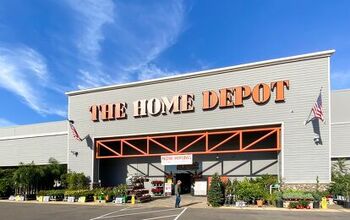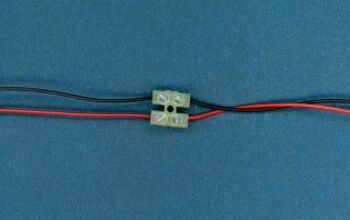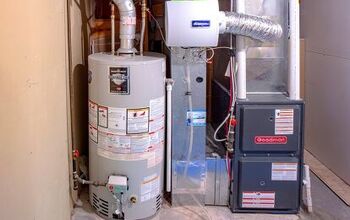How To Keep Animals Out Of Your Vegetable Garden

A vegetable garden will struggle to thrive if it is constantly under attack by animals and pests. Of course, deer, squirrels, rabbits, and groundhogs will find your vegetable garden enticing. That doesn’t mean you are doomed to have animals eat your vegetables. We have compiled several tips on how to keep animals out of your vegetable garden.
Use peppermint oil, cayenne pepper, soap shavings, and pungent herbs like oregano and lavender to keep animals out of your vegetable garden. It also helps to use ultrasonic devices and wind chimes because the sound will keep animals away. Otherwise, your best bet is to use raised beds, chicken wire, and fences to stop animals from eating your vegetables.
Never leave your vegetable garden exposed unless you use aromatic essential oils as a barrier. Follow along as we highlight how to keep animals out of your vegetable garden.
How Do I Keep Animals From Eating My Vegetables?
Whether you scatter peppermint oil around them or build a fence, there are several ways to keep animals out of your vegetable garden. Let’s look at the best ways to deter animals from eating your vegetables.
1. Peppermint Oil
Peppermint oil may smell good to humans, but many animals like deer and skunks avoid it. The strong odor dissuades pests from going further into your garden and eating your vegetables. Drop some peppermint oil along the perimeter of your vegetable garden to keep animals out.
You can also scatter some peppermint oil around the vegetables that are eaten most often. A jug of peppermint oil only costs $12, and it can last you for several months or years depending on how much you use.
2. Ultrasonic Device
Ultrasonic devices are among the best and least harmful ways to keep animals out of your vegetable garden. These devices emit sounds that are unpleasant to many animals that would otherwise try to eat your vegetables. Deer, rabbits, skunks, raccoons, and groundhogs, among other animals, typically avoid ultrasonic devices.
Simply stake the devices into the ground on the perimeter of your vegetable garden. You typically need at least one ultrasonic repellent device per side, but it varies based on the size of your garden.
3. Wind Chimes
Wind chimes work similarly to ultrasonic devices in that animals hate the sound they produce. They typically produce high-pitched sounds, which scares many animals that come to feed in gardens. Rabbits, squirrels, deer, rabbits, groundhogs, and more are easily scared by wind chimes.
However in some cases, wind chimes are less dependable than ultrasonic devices. That’s because they rely on the wind to produce sounds. With that said, wind chimes help keep animals out of your vegetable garden on windy days and nights.
Put the chimes in an open area so they aren’t shielded from the wind. This will ensure that they move around enough to generate high-pitched sounds.
4. Cayenne Pepper
Cayenne pepper is great for spicing up a dish, but it’s even better for keeping animals out of your vegetable garden. It’s no secret that cayenne pepper smells and tastes quite strong. Many animals will stop and turn around to look for food somewhere else when they smell cayenne pepper.
Curious animals may nibble on the cayenne pepper, and they will likely have a strong reaction to it. While the cayenne pepper won’t harm the animals, it will make them think twice about trying to eat the vegetables in your garden.
5. Stakes
It may not look pretty, but putting stakes around the vegetables in your garden can help keep animals out. Carefully place stakes in the ground throughout your vegetable garden. They will serve as a physical barrier and deterrent that makes it harder for animals to reach your vegetables.
Put the stakes in front of popular plants that animals eat. Stagger the stakes around the plants so that animals can’t get close enough to eat them. If you don’t have stakes, you can use sticks, chopsticks, branches, and even plastic or wooden cutlery.
6. A Fence
Building a fence is one of the only ways to ensure that animals will struggle to eat the vegetables in your garden. Whether you build a DIY fence or hire a contractor, fences are an often inexpensive way to keep animals out of your vegetable garden. Some animals, such as deer, may still make it into your garden, but you will keep squirrels, rabbits, mice, and groundhogs out.
You can expect to spend between $5 and $21 per linear foot to build a fence around your vegetable garden. The overall cost varies based on the fencing material and how big your garden is.
7. Chicken Wire
Chicken wire is a simple physical barrier that you can use to keep animals out of your vegetable garden. You don’t necessarily need to surround your entire garden with chicken wire. In many cases, you only need to surround certain vegetables such as tomatoes with chicken wire.
This is a great method to use in conjunction with other deterrents, such as ultrasonic devices and stakes. You can typically get a 4’x50’ spool of chicken wire for $35-$40, and you can secure it to the ground with stakes.
8. A Bar Of Soap
A bar of soap may smell good to you, but deer and rabbits don’t agree. Many homeowners take shavings or pieces of soap bars and scatter them in front of the vegetables in their gardens. The chemicals and artificial scents in soap smell foul to many animals.
Carefully spread the pieces of soap in front of the vegetables. Try not to embed the soap within the soil so the chemicals don’t soak through and hinder plant growth. Irish Springs soap is especially known for repelling animals, but you can use any bar of soap that has a strong, distinct smell.
9. Netting
Cover your vegetables or their enclosure with netting to keep animals out of your garden. The netting won’t stop your plants from getting sunlight, unless it’s too thick. You can always remove the netting during the day or at times when animals don’t typically visit your garden for a snack.
Make sure to choose netting that has small mesh, so the animals can’t tear it apart. Bird netting is a great option, and you can buy large sheets of it for $12.
10. Pungent Plants
Pungent plants and herbs such as oregano, sage, and garlic can deter animals. Plant some thyme, chives, lavender, and rosemary to keep animals out of your vegetable garden. Not only do they keep animals away, but they are quite useful in the kitchen and lend themselves to countless dishes.
Stagger pungent plants between the more desirable vegetables that animals eat in your garden. Some savvy gardeners plant pungent herbs along the perimeter of their gardens to deter animals. This is a great way to diversify your garden and protect your valuable vegetables.
11. Raised Beds
Raised beds make it difficult for animals to eat your vegetables. These simple box planters are an effective way to protect against soil erosion, pests, and foot traffic. Many homeowners put chicken wire around their raised beds for extra protection, but that isn’t always necessary.
Most animals will struggle to reach your vegetables if the raised bed is high enough off the ground. Deer can sometimes still reach vegetables in raised beds, however, so you may want to put peppermint oil or cayenne pepper in front of the plants.
Summing It Up
The best way to keep animals out of your vegetable garden is to use ultrasonic devices, peppermint oil, chicken wire, and wind chimes. You can also keep animals out of your vegetable garden with soap shavings, bird netting, pungent plants, and cayenne pepper. Build a fence around your vegetable garden or surround some key plants with chicken wire.
It also helps to plant vegetables in raised beds that make it hard for animals to eat them. If all else fails, simply hang some wind chimes near your vegetable garden, as the sound is unpleasant to animals and should keep them away.
Related Guides

Nick Durante is a professional writer with a primary focus on home improvement. When he is not writing about home improvement or taking on projects around the house, he likes to read and create art. He is always looking towards the newest trends in home improvement.
More by Nick Durante



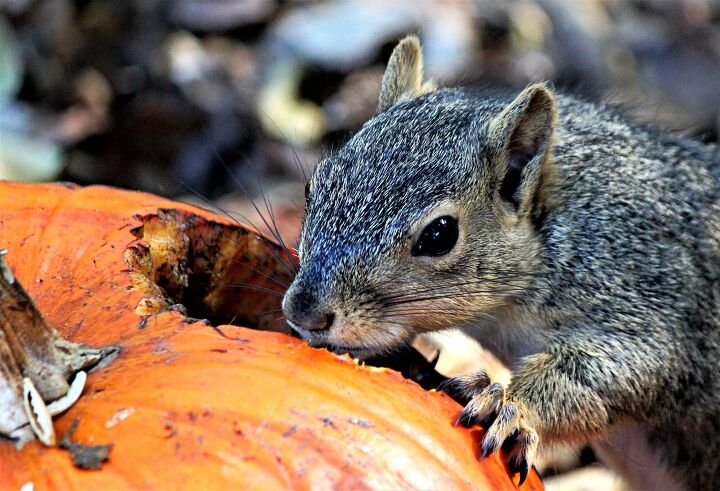






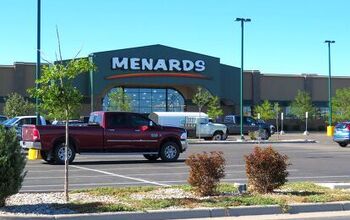
![10 Best Scroll Saws for 2022 [Ultimate Reviews & Buyer's Guide]](https://cdn-fastly.upgradedhome.com/media/2023/07/31/9070684/10-best-scroll-saws-for-2022-ultimate-reviews-buyer-s-guide.jpg?size=350x220)
